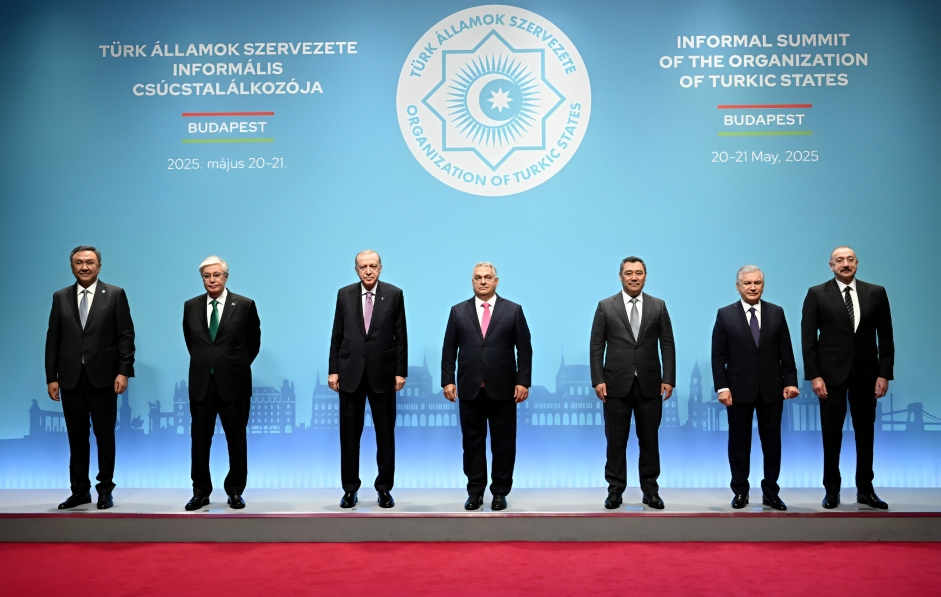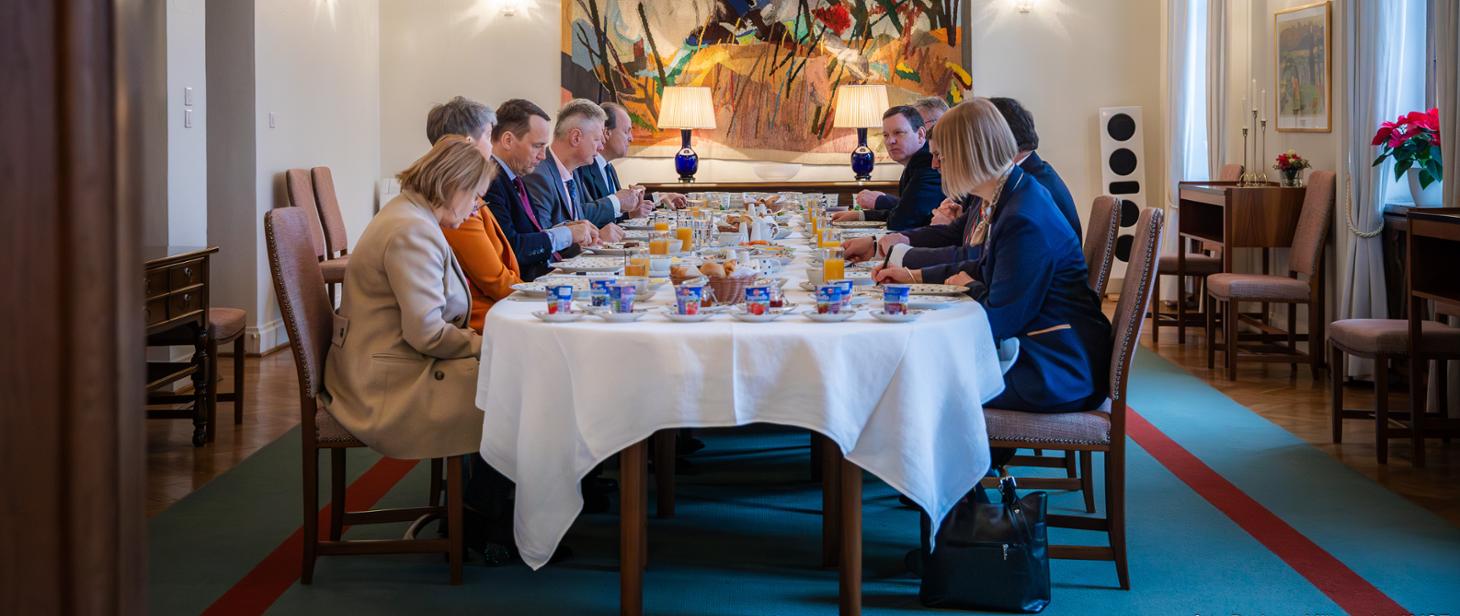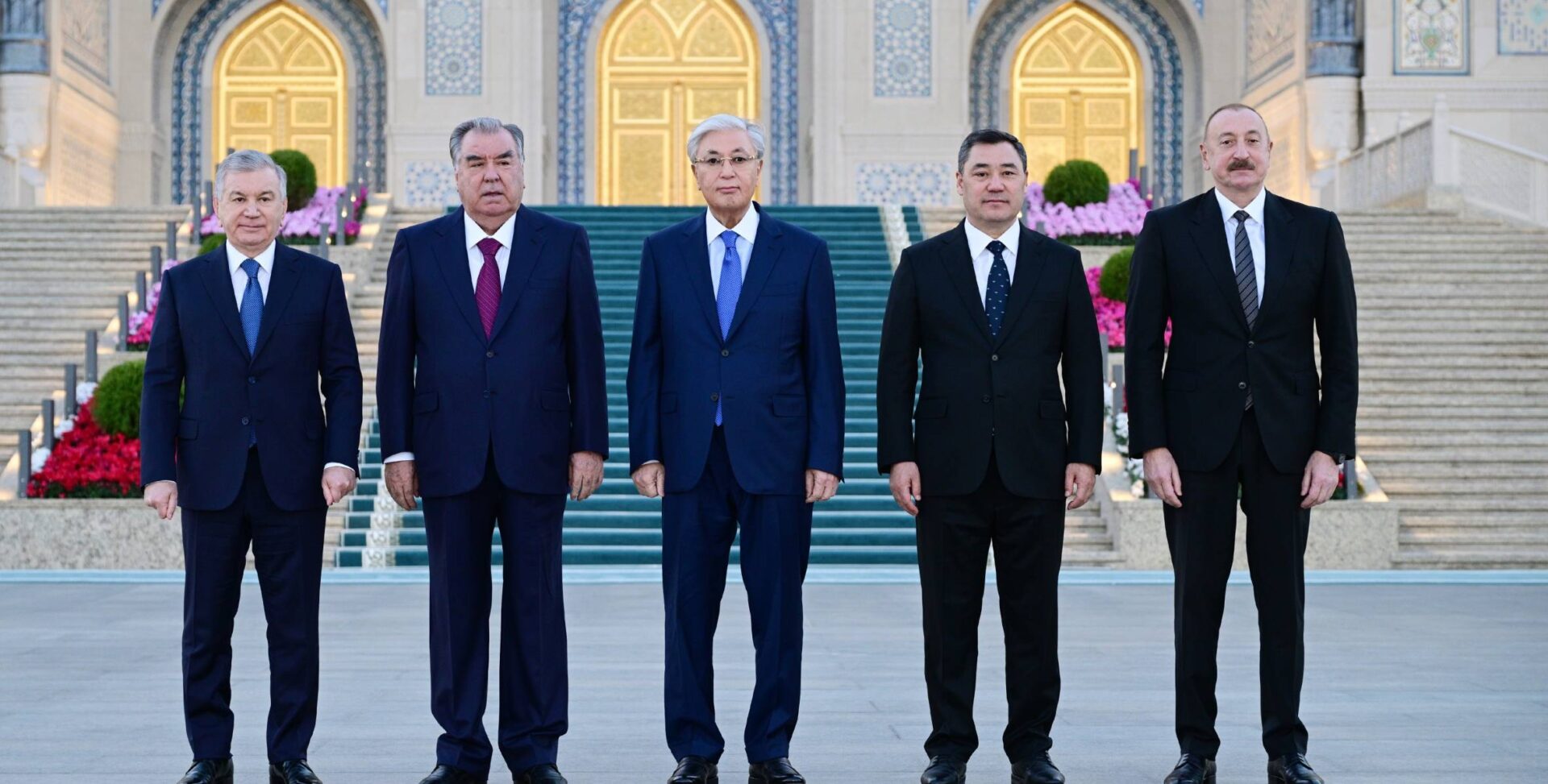
Hungary Courts the Turkic World
Hungary Courts the Turkic World
Executive Summary:
- Hungary hosted an informal summit of the Organization of Turkic States (OTS) in May 2025, aiming to strengthen Budapest’s strategic positioning between the East and West, diversify diplomatic alliances, and boost the organization’s regional influence in Eurasia.
- Hungarian Prime Minister Viktor Orbán is leveraging Hungary’s Turkic ties to attract investment, open trade routes, and mitigate energy insecurity—all while hoping to regain domestic support before the 2026 elections.
- Budapest’s engagement with Turkic states may help establish Hungary as a regional energy and trade hub, especially if the Three Seas Initiative is successfully revived and Hungary increases its participation in the Middle Corridor.
On May 20 and 21, Hungary hosted an informal summit of the Organization of Turkic States (OTS). The gathering brought together the leaders of Türkiye, Azerbaijan, Uzbekistan, Kazakhstan, and Kyrgyzstan, as well as OTS Secretary-General Kubanychbek Omuraliev. Budapest’s official goals for the summit were to “reinforce its role as a bridge between the East and the West” and to “elevate the organization’s strategic role” in the political and economic networks of Eurasia (Government of Hungary, May 16; Index.hu, May 20).
Hungarian Prime Minister Viktor Orbán’s reasoning for expanding ties with the Turkic world goes well beyond the generalized official aims. According to the latest data from Eurostat, Hungary has become the “poorest country” in the European Union, at least as it pertains to citizens’ purchasing power (Hvg.hu, June 18). Furthermore, Hungary, along with Slovakia, continues to block EU sanctions packages on Russia, mostly due to both countries’ overdependence on Russian energy supplies (444.hu, June 23). Hungary’s economic weakness relative to its fellow EU member states and its strong ties to the Kremlin have in large part contributed to firebrand opposition leader Péter Magyar’s strong numbers in independent polls (24.hu, May 6; see EDM, May 14). While much of the growing Hungarian-Turkic relationship is genuine, above all, Orbán is fixated on preserving his hold on power. Expanding ties throughout the Turkic world allows the Hungarian premier to not only balance against the likes of Russia, the People’s Republic of China, and the European Union but also shore up economic and energy insecurities at home. In this way, Orbán and his ruling Fidesz-KDNP alliance hope to regain domestic support ahead of the pivotal parliamentary elections scheduled for April 2026.
The summit in Budapest was considered “informal” due to Hungary’s status as only an observer in the OTS. Hungary gained that status in 2018 during the OTS summit in Kyrgyzstan, where Orbán claimed all Hungarians “consider themselves to be late descendants of Attila, of Hun-Turkic origin” (Prime Minister of Hungary, September 2, 2018). In Budapest, the Hungarian leader highlighted, “Buda is an ancient name: He was the brother of the great King Attila, the brother of the King of the Huns … This demonstrates the very deep, historical, spiritual, and cultural links that make Hungary part of the Organization of Turkic States” (Government of Hungary, May 22). The informal summit culminated with the signing of the Budapest Declaration, which included a joint pledge to combat terrorism, organized crime, and cyber threats as well as a joint statement on humanitarian, agricultural, and diplomatic aid to Afghanistan (OTS, May 21).
The Hungarian government hopes that expanded ties with Turkic countries will help reverse some of Hungary’s economic woes. In his address at the summit, Orbán proclaimed, “If today, Hungary could only rely on … the European economy, we would be in big trouble. We also need the economic dynamism within the Turkic world; otherwise, our country would be unable to develop at the pace it needs” (Government of Hungary, May 22). OTS Secretary-General Omuraliev, in an earlier meeting with Hungarian State Secretary Péter Sztáray, noted that Hungarian trade with Turkic countries has already surpassed $5 billion (OTS, May 19).
This growth is perhaps most apparent in Central Asia. For example, Budapest and Bishkek agreed to establish the Hungarian-Kyrgyz Development Fund in April 2021, which had the initial registered capital of $16 million with the intention of increasing to $50 million (Hungarian-Kyrgyz Development Fund, February 26, 2022). This year, Budapest and Bishkek vowed once again to finally reach that goal and on April 15, Hungarian and Kyrgyz officials emphasized the fund’s “important role” in strengthening their bilateral partnership (Kyrgyz Ministry of Economy and Commerce, April 15; Trend.az, April 16). In March, Kazakhstan restated its goal to increase bilateral trade with Hungary from $200 million in 2024 to $700 million in 2025 (Kursiv.media, March 20). The upheavals to trade and transit routes brought on by Russia’s full-scale invasion of Ukraine have plagued the Hungarian economy. Establishing alternative routes and increasing trade with new partners will be key for the Orbán government if it hopes to promote economic growth ahead of the 2026 elections.
Increased cooperation with OTS members also affords Budapest the opportunity to diversify its energy partners. In May, during a joint press conference with Azerbaijani President Ilham Aliyev, Orbán stated, “Without our Turkic friends, the reduction of household energy bills would not be possible in Hungary.” He also thanked Aliyev for the first delivery of Azerbaijani gas supplies last year (Government of Hungary, May 21). Later, Orbán highlighted the instrumental role Türkiye and the TurkStream pipeline have played in Hungarian energy security during Russia’s war against Ukraine (Index.hu, May 23).
Moscow’s war has exacerbated Hungary’s energy crisis, especially as Budapest continues buying significant quantities of Russian energy. Orbán has even begun to campaign heavily against the EU initiative to phase out Russian energy by 2027 (Magyar Hang, June 23). With energy prices rising, however, Budapest has sought to diversify its supply. To this end, Hungarian Energy Minister Csaba Lantos recently announced that Hungarian state-owned energy giant MVM Group signed an agreement with Azerbaijan to acquire a 5-percent stake in the Shah Deniz natural gas field (Government of Hungary, June 6). Earlier this year, Kazakh officials agreed to begin sending energy supplies to Hungary via the Druzhba pipeline and expressed interest in Hungary’s production of dry cooling towers for nuclear power plants (The Astana Times, February 18). Uzbekistan has also voiced interest in Hungary’s “sixty years of knowledge” with nuclear power (Government of Hungary, May 22). Beyond potentially bringing down domestic energy prices, future energy cooperation between Budapest and the Turkic capitals could position Hungary as an energy hub for Central and Eastern Europe, especially if the Three Seas Initiative—a forum of 13 EU states spanning from the Baltic Sea to the Adriatic and Black seas—is successfully revitalized.
Hungarian commentators differ on the deeper designs behind Budapest’s recent turn to the Turkic world. Péter Pál Kránitz, senior research fellow at the state-owned Hungarian Institute of International Affairs, argues that cooperation with the Turkic world could be considered one of Hungary’s “earliest foreign policy programs” (Magyar Nemzet, May 20). He stated that with the global order in flux, the OTS can serve as an “independent pole in the new multipolar world order.” Kránitz concludes that such potential fits in well with Hungary’s foreign policy philosophy of “maintaining pragmatic relations with all valuable players in the world economy.”
Szabolcs Veres, a researcher at the Eurasia Center, pointed to the wider regional focus on pursuing a balanced, or “multi-vector,” foreign policy. He asserted that while the OTS still faces serious challenges, the message is clear: “avoid excessive dependence on a single great power and focus instead on deepening internal cohesion and strengthening political and economic cooperation” (Index.hu, May 23). The Hungarian researcher placed special emphasis on Hungary’s position as a “strategic bridge” between regions and a potentially critical node in the future development of the Middle Corridor. If Orbán and his ruling alliance can provide tangible evidence that Hungary is indeed becoming a regional hub for trade and energy, it could go a long way to reinvigorating their voting base as the 2026 elections loom.
The uncertainty of the Orbán government’s political future, nevertheless, should not damage further progress in Hungarian-Turkic relations. In many ways, it would be in the best interest of any Hungarian government to tap into the Turkic world’s enormous economic and energy potential. These partnerships can be constructive in strengthening transit connections between Asia and Europe, as well as mutually beneficial in helping each country diversify trade and energy partners to avoid overreliance on outside powers. Budapest’s partners should tread lightly, however. The Orbán government’s penchant for corruption, nepotism, and cronyism could doom future projects, as seen with the Budapest-Belgrade railway fiasco (Telex, December 9, 2024).


